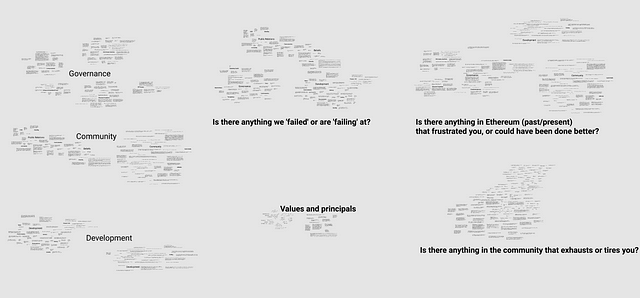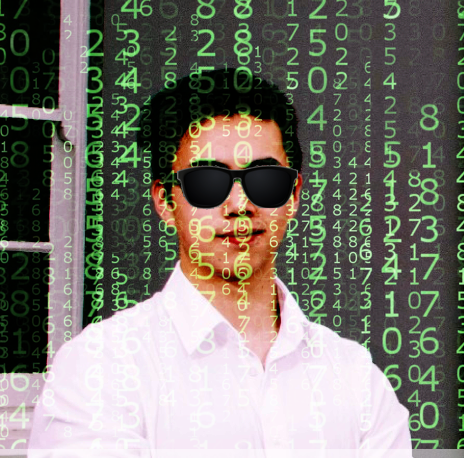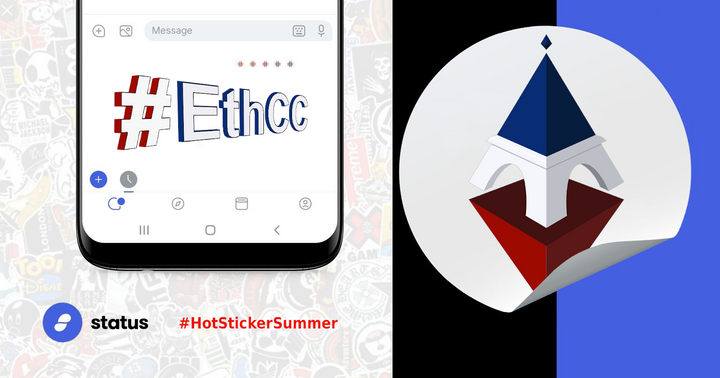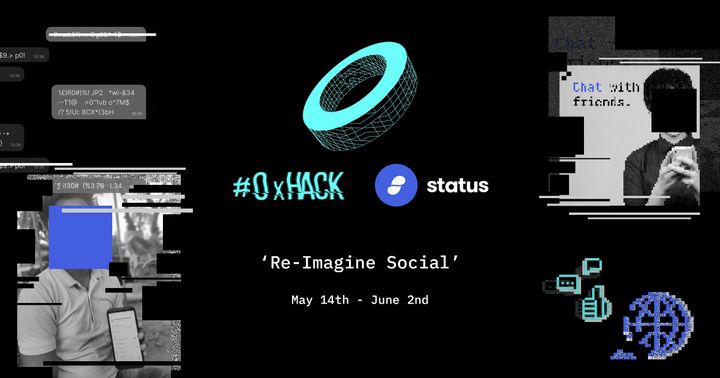What values does Ethereum believe in and what is the future the community wants to create?
Art from the Song Dynasty — China’s age of invention
Context
It has been three years since the launch of Ethereum and it has taken the center stage of the global tech community. Decisions over the future of Ethereum now reverberate louder than ever and it was a matter of time before we all had to address how we govern ourselves. In April this year, EIP999 was created and the community was once again reminded of the DAO hardfork. Contentious and without finality: Was the DAO hardfork the right decision? Should Parity be allowed to amend the blockchain and recover the funds?
It sparked an awareness and in response to this, EIP0 was born. Held days before the start of EDCON 2018, it was a three day invitational hackathon which looked to discover Ethereum could be better governed. Three days passed and little tangible progress was made. But nonetheless, the important first step was taken. With more questions than answers, we all became aware of the mountain in front of us all.
What did governance mean and what did it entail?
How were decisions going to be made? And based on what?
What were the values of Ethereum?
What values did the community believe in and embody?
These were big questions and required more than a few blog posts to resolve. It required organized effort. Half a month later, Jarred Hope created a community survey and gathered 200 responses. The looked to diagnose potential problems of Ethereum. It looked to discover the values of ethereum, its moments of greatness but also its flaws. And while some may argue about the sample size of the community and the crudeness of the survey itself, it produced valuable data which we never had access to before.
Responses varied between entertaining, funny and outright frustrated. After reading through most of everything, I personally found these two questions the most interesting…
Is there anything we ‘failed’ or are ‘failing’ at?
Is there anything in Ethereum (past/present) that frustrated you, or could have been done better?
Answers to these questions were honest and blunt but also, the data we needed to grow. I was able to organise and map out all the common concerns raised by the responses. Let’s take a look!

Ideas board: https://www.figma.com/file/I0r0qsykpH459ti94LrVql3q/EIP0-Responses
I did a bit of poking around and discovered trends amongst the concerns raised about Ethereum. And while popularity does not necessarily equate to their urgency but nonetheless they are important to address.
How do we govern Ethereum?
While not a surprise, governance was on the top of the proverbial list. With nearly over a third of people believing Ethereum to be failing at governance, we had replies about how Ethreum failed to learn from the DAO hardkfork and how there was little clarity and order around the current governance process.
“…the post-parity hack discussions were kind of a mess. Everyone seemed to be talking over each other, rather than at each other. No one seemed to understand each other’s perspectives”
Some called for greater consideration when handling governance. While it is too easy to say “don’t make it personal”, the matter of fact is that when you are dealing with personal reputation, egos, other peoples money and the core values of others, it becomes a complicated matter. “Empathy is key” Others believed that our mistakes would come back to haunt us all. Many believed that how events such as the DAO hack and parity hack were handled disappointingly.
“The DAO hardfork. The way it was decided and communicated was against what I believed Ethereum was about”
“We did the DAO fork for historically understandable reasons and it worked out OK, but this has spawned various misconceived attempts to govern it that would be better done on a different platform or around a different token on top of Ethereum”
“EIP 999 discussion was not managed well (I was not in favor of it, but that was not the point). Also, Vitalik introducing the April Fools hardcap “joke” wasn’t really a great way to introduce such an important discussion. Also, in general, we don’t put enough emphasis on user experience in actually using Ethereum”
The discussion thread for EIP999 — Painting from the Qing Dynasty, Guangxu Period
Is this governance a problem? Definitely. Do we have a solution? No. But I think we can do a lot to make the process of finding one smoother. We need to be considerate of the fact that in most governance cases, SOMEONE or a group will need to make a decision or as the CEO of Uber says ‘the D’. Good calls will be made but so will bad ones. That sourness is inherently unavoidable yet we pretend to live in a world without disappointment. Many times the person you are twitter flaming is just as passionate as the problem as you are and simply wants the best outcome. Instead of the uncontrollable ‘right’ and ‘wrong’, we should be focusing on making better decisions over time. With so much at stake, it is like Poker. You must play without emotion but with belief and aggression. To be a winning player, you must make the right call at all times without baggage from previous failures or fear of future ones. However in order to do that, we must be led by values and a shared vision. Hard and controversial decisions like EIP999 won’t be the last difficult one that Ethereum has to deal with. And when the darkest hours of the night come, we can still depend on that origin mission that united everyone together in the first place.
Hypothesis
We all touched upon this at the end of EIP0 — communication. While people might comment on disorganization, lack of clarity or criticism of the decisions made, I believe they are underlying symptoms of poor communication. The governance decision making process is opaque and strewn all over the place from twitter threads to obscure wordpress blogs. We need a community recognized stage where all governance related issues are documented and collected.
This is the core of the dilemma. Any work that involves representing the system takes time and effort out of the system it represents. We don’t have a formal way of allocating resources for this. A chicken and the egg problem.
Who was in the decision making process? Which group made the final decision? Who supported the decision? Who didn’t? How can Ethereum learn from such decisions in the future? What would determine the success of the decision? What would mean a failure? If either happened, what part of the decision making rationale would need to be reviewed?
If we are able to document those aspects of decisions, we would not only improve the visibility of governance, improve communication but also be able to learn from our ability to govern.
But before we even attempt to solve and improve the communications of Ethereum, we need to establish what that very governance will be led by. What are our values? What does Ethereum stand for? What do we want Ethereum to become? While some people are immutability maximalists, some aren’t. There is a reason for forks. Ethereum needs to decide on what it aims to be and create a united clear vision. I believe that we can worry about all the messy details of ordering EIPs and decentralising control after there is an established vision. Everything else will follow. Only then can we then move with rigor and make decisions with full conviction.
“Communication. We need to bridge the gaps in communication. However, it is hard if we don’t even agree on what are our shared values.“
James Hancock mentioned how that politics 50 years ago is not politics today, politics 50 years ago will not be the same as today. Locking ourselves into a set of ideals now, not only has its worries, it is impossible to know what the belief systems of the future will be. We are ever evolving groups that change and grow over time.
Going forward action items:
- What does Ethereum want to be? What is its vision? What values does Ethereum embody? What the boundaries of Ethereum? — Start writing and releasing manifestos written by teams or individuals?
- We need better communication of problems along with greater visibility and clarity behind the governance rationale — Establish a central stage where all aspects of governance can be documented?
- We need full time focus on governance. They need to be the right people and I don’t mean people with credentials. They need to be people who truly care about Ethereum and people you believe and trust in — Fund individuals to figure out governance. “Ethereum wide product managers who present problems and facilitate problem solving” (Sounds similar to politicians? eh.)
What is the Ethereum Foundation?
Unlike concerns about the governance of issues like EIP999, there was a wide angle of issues directed towards the Ethereum Foundation (EF). Responses had concerns over the direction of funding. How much, when and who. Is funding going to the right places? How is funding decided upon? Who is it decided by? Who controls the EF? Who works for the EF? How is the organisation structured? How can others participate in the governance of the Ethereum Foundation? Sounds like a lot of ambiguity!
Let’s take a look at the Ethereum Foundation’s mission on their website…
The Ethereum Foundation’s mission is to promote and support Ethereum platform and base layer research, development and education to bring decentralized protocols and tools to the world that empower developers to produce next generation decentralized applications (dapps), and together build a more globally accessible, more free and more trustworthy Internet.
What other functions is it involved in? How does it stay impartial? Where does the influence of the EF start and end?
The Ethereum foundation holds a lot of centralized weight, influence and financial ability in the Ethereum space and thus why we should all be concerned with its conduct. Whether it is good or not, they hold responsibility on the same level as state nations in maintaining and funding public goods.
“its a trap” — quote from the General Ackbar, a song dynasty commander
“I’ve always felt that the Ethereum Foundation could’ve fostered a more radical approach: radical transparency & more radical openness”
“While not “failing,” I feel that the Ethereum Foundation needs to become increasingly decentralized and transparent. This could take the form of adding more contributors, more articles about what is being worked on, and so on. We want to avoid the perception that decisions and meaningful work is happening in the proverbial smoke-filled room”
“What is going on with the EF vs Ethereum Research? Why isn’t tons of money being directed by those orgs (does only one have money?) into real core development? The grant program is a start but needs 10x and better coordination / visibility”
Hypothesis
Again I think the wide range of concerns surrounding the Foundation can be solved with clearer clarification of what the Ethereum Foundation is and what it is not. Unless better ongoing communication happens, there will always be a blurred sense of ambiguity. This then can potentially distort the weight of its power in areas in which it should not involve itself in.
In terms of transparency of operations, this is likely to have been a highly discussed topic within the organisation and the current situation is likely to be where it is for a good reason. I personally believe that with so much weight in the community, it should operate with absolute transparency. I give massive props to the transparency of Aragon’s quarterly reports (salaries, expenses, auditing costs, bounties etc.) where the financials are published out into the open. I also suggest looking at how the Zcash Foundation conducts grant funding — everything is organized in github issues where dialogue is open to the public. Rejections and accepted grant applications are all visible. I really appreciate that and hope Ethereum could move toward something similar.
There were other problems addressed such as impartiality and issues over the potential political centralization of the Ethereum but I think if we care about them, then they will show through our values. And if we are led by our values then it will be fought for.
Going forward action items:
- What is Ethereum Foundation’s specific function within the community? What is it involved with? Events, grants or even media? Where do the responsibilities start and end? — Clarify
- Implement transparency — As discussed
Conclusion
I think these suggestions could provide for a first step and serve well as the start of discourse threads. I am only one person, please help drive this. There are many things which I haven’t addressed! Please explore the responses yourself. More interpretations are welcome. Happy to contribute.
Survery Responses (Google sheets) | Ideas board (Figma) | On-going discussions on Gitter.im/ethereum/governance | Draft of this article with discussions
Also here is one of my favorite quotes from the survey and found it special.
“The DAO hack was a lot of fun. It was like living in a science fiction movie.”
ps. Thanks to James Hancock for valuable points, ideas and additions to the draft of this piece.










